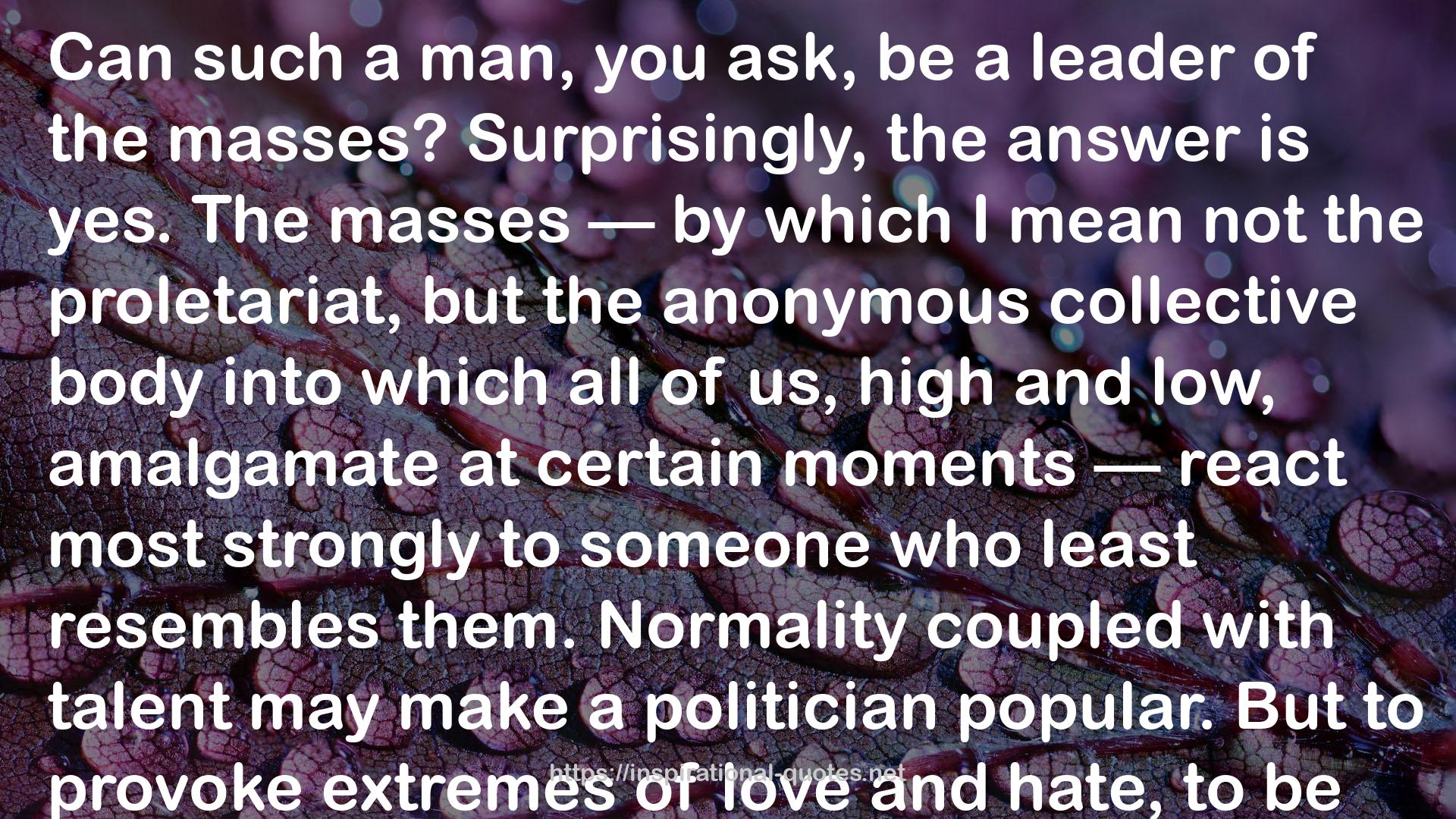" Can such a man, you ask, be a leader of the masses? Surprisingly, the answer is yes. The masses — by which I mean not the proletariat, but the anonymous collective body into which all of us, high and low, amalgamate at certain moments — react most strongly to someone who least resembles them. Normality coupled with talent may make a politician popular. But to provoke extremes of love and hate, to be worshipped like a god or loathed like the devil, is given only to a truly exceptional person who is poles apart from the masses, be it far above or far below them. If my experience of Germany has taught me anything, it is this: Rathenau and Hitler are the two men who excited the imagination of the German masses to the utmost; the one by his ineffable culture, the other by his ineffable vileness. Both, and this is decisive, came from inaccessible regions, from some sort of “beyond.” The one from a sphere of sublime spirituality where the cultures of three millennia and two continents hold a symposium; the other from a jungle far below the depths plumbed by the basest penny dreadfuls, from an underworld where demons rise from a brewed-up stench of petty-bourgeois back rooms, doss-houses, barrack latrines, and the hangman’s yard. From their different “beyonds” they both drew "
― Sebastian Haffner , Defying Hitler
